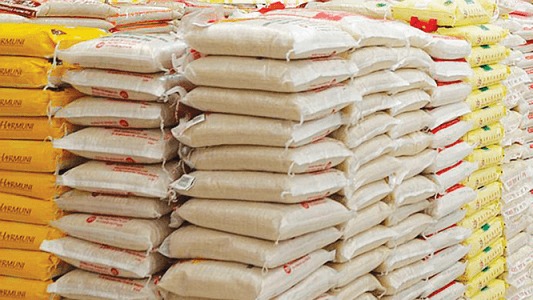Nigerian families are facing tough times as the cost of living skyrockets, forcing them to find unconventional ways to make ends meet.
The price surge in goods and services has left many struggling to afford daily necessities.
Among the hardest hit is the price of rice, a staple food in the country. A bag of rice, which used to be more affordable, has now reached a staggering N77,000.
The National Bureau of Statistics reported a record-breaking inflation rate of 28.9 percent in December, the highest in 27 years. This increase, which amounts to 0.72 percent from the previous month, reflects the growing economic challenges facing Nigerians.
The rise in food prices has been a growing concern across Nigeria, exacerbated by government policies such as the removal of petrol subsidies and the devaluation of the naira in the foreign exchange market.
Traders in major cities have witnessed the price of rice nearly doubling, with a bag now costing over N70,000, up from N45,000 to N50,000 just a few months ago.
The soaring prices have triggered protests in various parts of the country, from Kano to Niger, Rivers to Osun. Residents are taking to the streets to express their frustration with the economic hardship they are facing.
In Niger State, protests erupted in Suleja and Minna, with citizens demanding relief from the high cost of living.
Organized labour has also threatened industrial action to highlight the challenges posed by the current economic situation.
Despite government efforts to distribute grains and other essentials to alleviate the crisis, many citizens continue to struggle with the steep rise in commodity prices.




